You are probably thinking, "I have to replace brake fluid? Who has time for that?"
But the truth is: It's not about replacing your brake fluid. It's about making sure your car is safe for the track AND commuting.
If you're like most people, you don't give much thought to your car's safety—until something goes wrong. Brakes, for instance, are one of the most important yet neglected components of your car. They are responsible for stopping your vehicle when you need it to, and they ensure that you can get safely from point A to point B. But your car's brakes are only as good as the fluid inside them. Without the proper amount of fluid, your brakes can become stiff, squeaky, or even worse—they may fail altogether. And if your brakes are not working properly, it could put you and your passengers in danger.
So, if you have noticed that your brakes are not working as well as they used to, or if you have been getting a funny, burning sensation when you press on the pedal, it's time to check your brake fluid. And although it may seem like a mundane task, it's one that can save your life! But when should you replace your brake fluid? To help you make the right decision, we've put together a list of five reasons why to change brake fluid and how often to flush brake fluid.
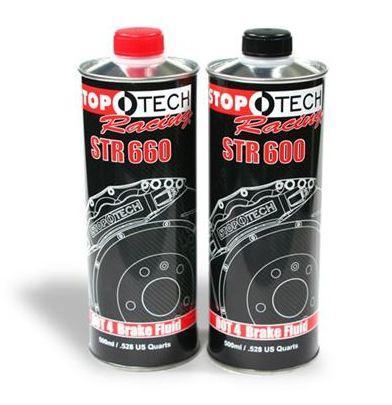
6 Warning Signs to Change Your Brake Fluid
Brake fluid is one of the most important parts of your car's braking system. It helps to reduce the heat that builds up in your brakes, which can lead to brake fade and poor stopping power. But when you're not replacing your brake fluid, you run the risk of damaging your car's braking system. Here are six warning signs that it's time to change your brake fluid:
1) Soft, Bouncy, or Spongy Brake Pedal
If you've noticed that your brake pedal feels soft, bouncy, or spongy, it's likely that the brake fluid in your car has become contaminated. The next time you stop at a red light, check out how far the brake pedal sinks down after you apply pressure to it. If you see a lot of movement and resistance in the pedal before it reaches its resting position, then it's time for new brake fluid!
Brake fluid is hygroscopic—it absorbs moisture from the air. As moisture builds up in your car's brake system, it can cause corrosion on metal surfaces and interfere with the proper function of seals and gaskets. This can lead to sticking brakes and other problems like squealing noises when applying the brakes or a loss of braking power when driving at higher speeds.
If you notice any of these symptoms while driving around town—or worse yet, on the highway—it could be time for new brake fluid!
2) Degraded Braking Performance
Brakes are meant to provide instant deceleration, but if your brakes are not engaging properly, you could find yourself in a dangerous situation. If your car is pulling to one side or the other when you apply the brakes, or if it does not respond as quickly or effectively as it once did, it's time for new brake fluid.
The reason behind this is that old brake fluid leaves a film on the brake pads and discs that prevents them from grabbing onto the rotors or drums as well as they should.
This is especially dangerous in an emergency situation when your car needs to come to a quick and complete stop. If you notice that your brakes do not respond as quickly or effectively as they once did, it's time for new brake fluid!
3) ABS Dashboard Light
ABS or anti-lock brake systems are designed to prevent you from losing control of your car in an emergency situation. The ABS system works by sensing when the wheels lock up while you're braking and then releasing the pressure on each wheel individually, allowing them to continue turning and moving your car forward instead of locking up completely. If this light comes on, it means that there is a problem with one or more of your tires or wheels—usually because they are out of alignment or have low brake fluid.
In fact, if the sensors detect that any of the brakes (which are crucial for the optimal performance of ABS) has a low fluid, the light will come on. You should check your brake fluid level right away and refill it as needed. If this light stays on, be sure to take your car in for service as soon as possible—and don't drive until you do so!
4) Strange Noises or Smells
Being an electro-mechanical machine, the car has many moving parts that can make strange noises or emit odors. Now, this is not some kind of warning light, so it doesn't have to mean that something is wrong. However, if you notice a strange smell or noise coming from your car, especially when you press hard on your brakes, you should take it in for service. It could be a sign of early wear and tear that needs to be addressed before it becomes a safety hazard. Brake fluids could be leaking onto the ground, which may indicate that there is a leak in your brake line. This can cause your brakes to malfunction and leave you stranded on the side of the road. If you notice any smells or strange noises coming from your car, it's best to have it checked out by a professional mechanic as soon as possible!
5) Maintenance Is Long Overdue
It might seem like an unnecessary expense but changing your brake fluid is actually a vital part of keeping your car in good working order. If it's been more than two years since you last changed your brake fluid, then you should consider doing so. The reason for this is that brake fluid becomes contaminated over time.
This contamination causes the fluid to deteriorate and become less effective at protecting the car's brakes. When this happens, you might notice that your car is harder to stop or that it takes longer for your brakes to engage. If you experience either of these issues, then it's probably time to have your brake fluid changed!
6) Brake Fluid Discoloration
Brake fluid discoloration is a very common problem. This can occur when the brake fluid becomes contaminated with dirt and debris from the environment or when it becomes oxidized. When this happens, your brake system will become less effective and can even fail completely.
This is one of the most obvious signs that your brake fluid needs to be changed. So, if you notice that your brakes are spongy or soft or that your brake pedal feels different, then it's time to get the fluid changed!
When to Replace Brake Fluid?
Now that we have discussed almost every known symptom that indicates that your brake fluid needs to be replaced let's talk about “when should I replace brake fluid?”
There is no set schedule for changing your brake fluid, but there are some general guidelines that can help you determine when to do so:
1) Warning signs
Every vehicle is driven under different conditions, and each vehicle has different warning signs that indicate it's time to change your brake fluid. The most obvious is the presence of a leak or a leaky pedal. Anytime you notice any fluid coming from under your car, take it in for service immediately so that the leak can be fixed before any damage occurs. Another warning sign is when your brakes feel soft or spongy when applied. This indicates that air has entered the system through a leak and needs to be flushed out before further driving occurs.
2) Miles driven
Brake fluid has a shelf life, and it's recommended that you change it every two years or so. However, if you have driven more than 45,000 miles (72,420 km), it's a good idea to replace your brake fluid as well. This is because the friction caused by driving wears down the fluid and makes it thinner. If you let this go too long without changing your brake fluid, it could reduce its effectiveness in an emergency situation and lead to an accident.
3) Manufacturer's Recommendation
Most car manufacturers recommend that you change your brake fluid at least once every two years. This recommendation is based on the fact that its effectiveness can degrade over time. However, if you drive a lot, it's a good idea to change it more often than that. You can find the manufacturer's recommendation for your vehicle in its owner's manual or by looking at your car's service history.
Why Change Brake Fluid?
Your vehicle's brake fluid is a crucial component of your car's braking system. It supplies the pressure needed to stop your vehicle, and it makes sure that you have enough friction between your brake pads and rotors so that your car doesn't slide out from under you. Brake fluid is also hygroscopic, which means that it absorbs moisture from the air. As this happens, it becomes less effective and can even damage your car's braking system.
For example, if you don't change your brake fluid regularly and there's too much moisture in it, your brakes could lock up when you apply them during an emergency stop. This could lead to an accident and could even cause your car to roll over. That's why it's important to change your brake fluid frequently, especially if you drive in areas where the weather is humid.
Beyond this, brake fluid also acts as a lubricant for the pistons in your car's braking system. If you don't regularly change your brake fluid, it can become contaminated with dirt and other particles that may cause corrosion on metal parts in your car's braking system. This could lead to a malfunction while you're driving or even damage to some of the components of your brakes.
Best Performance Brake Fluid
When it comes to finding the best performance brake fluid, there are a few brands that stand out from the rest. StopTech, Motul, Redline, Hawk Performance, Lucas Oil, Ferodo, and AP Racing all offer high-quality brake fluid that can help to improve your vehicle's performance. One of the most important factors in equipping a car for racing is handling heat. As new components are added, they can generate additional heat - from the bigger controlled explosions inside the engine to the increased friction on the transmission.
Any time we can find ways to cool things down, it gives us an advantage that can make all the difference in a race. That's where performance brake fluid comes in. The liquid in your brake system can help to keep things cooler and lubricate, improving your chances of success on the track. So if you're looking for an edge in your next race, make sure to choose a quality performance brake fluid.
Final Conclusion
Hopefully, by now, you have got your answers to how often to flush brake fluid and why you should flush your brake fluid. If you have any further questions about this topic, please feel free to leave a comment.
Buy performance brake fluid

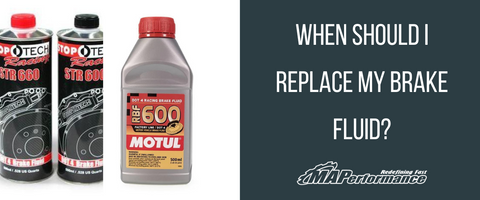
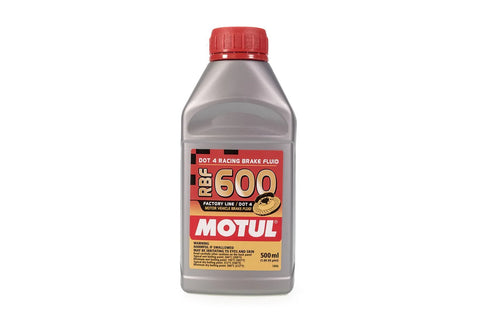
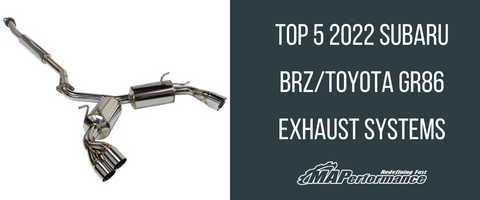
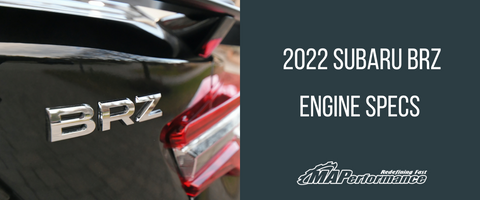
Comments (0)
There are no comments for this article. Be the first one to leave a message!